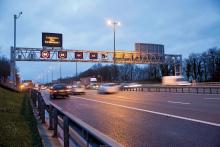The UK Freight Transport Association (FTA) is pleased its concerns about management and signalling on smart motorways have been addressed in the Government’s response to a Transport Select Committee report published this week.
FTA raised its concerns with Highways England on Red X compliance and proper management of the signal systems on smart motorways. The Government has responded to the Transport Select Committee’s report on all-lane running, highlighting these concerns.
Smart motorways use tech
The UK 6983 Freight Transport Association (FTA) is pleased its concerns about management and signalling on smart motorways have been addressed in the Government’s response to a Transport Select Committee report published this week.
FTA raised its concerns with8101 Highways England on Red X compliance and proper management of the signal systems on smart motorways. The Government has responded to the Transport Select Committee’s report on all-lane running, highlighting these concerns.
Smart motorways use technology to actively manage traffic, keeping vehicles flowing freely and increasing the capacity of the road by either temporarily or permanently opening the hard shoulder to traffic.
FTA had said that rather than denying road users the much-needed benefits of more reliable journey times that smart motorways provide, the focus should be on educating drivers on how to use them safely, what the various signs mean and what they should do in the event of a breakdown.
Malcolm Bingham, FTA’s head of Road Network Management Policy, said: “FTA recognises the importance of looking at the safety aspects of vehicles coming to a halt in a live lane, but this is something that could happen even with a hard shoulder as vehicle faults can occur anywhere and there must be a system to deal with such occurrences, particularly on busy sections of motorway. The Government’s evidence on schemes already built show that there is also growing positive evidence of the safety of all lane running.”
FTA raised its concerns with
Smart motorways use technology to actively manage traffic, keeping vehicles flowing freely and increasing the capacity of the road by either temporarily or permanently opening the hard shoulder to traffic.
FTA had said that rather than denying road users the much-needed benefits of more reliable journey times that smart motorways provide, the focus should be on educating drivers on how to use them safely, what the various signs mean and what they should do in the event of a breakdown.
Malcolm Bingham, FTA’s head of Road Network Management Policy, said: “FTA recognises the importance of looking at the safety aspects of vehicles coming to a halt in a live lane, but this is something that could happen even with a hard shoulder as vehicle faults can occur anywhere and there must be a system to deal with such occurrences, particularly on busy sections of motorway. The Government’s evidence on schemes already built show that there is also growing positive evidence of the safety of all lane running.”







